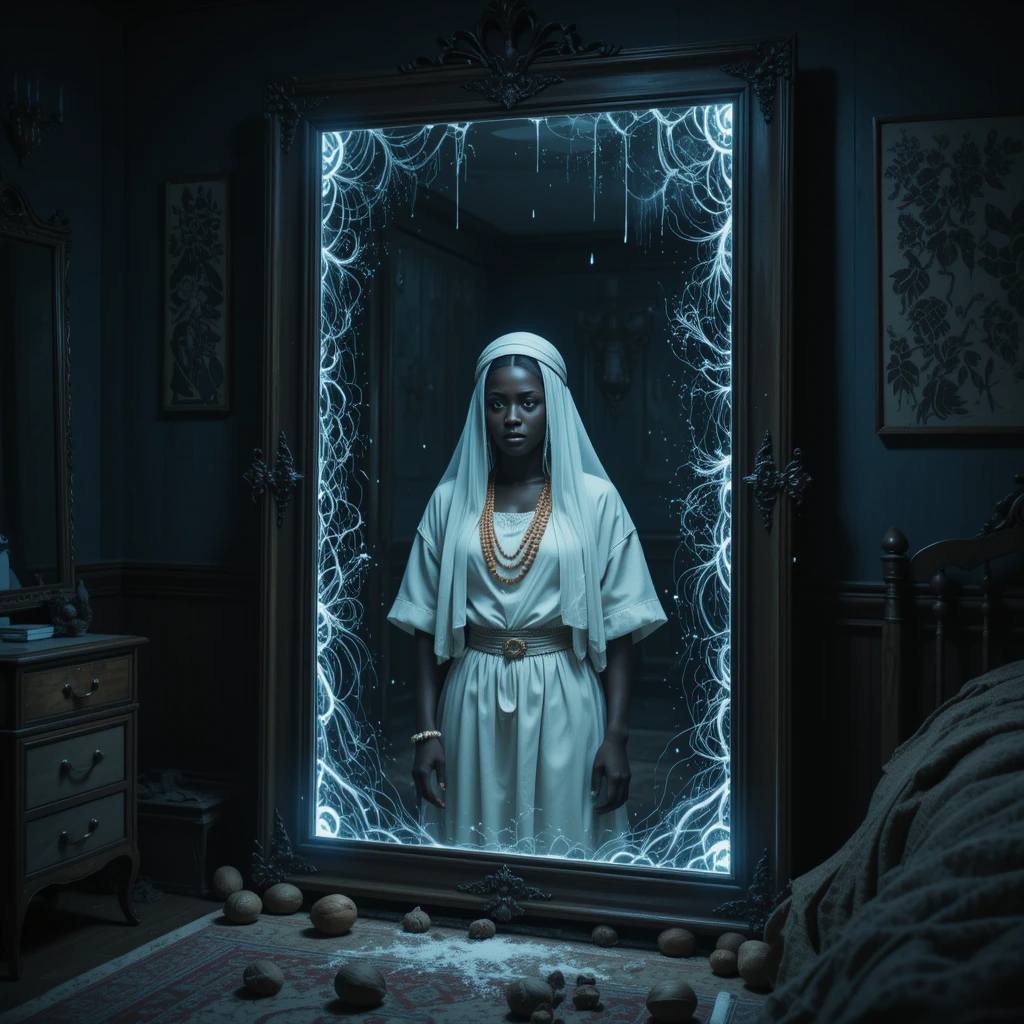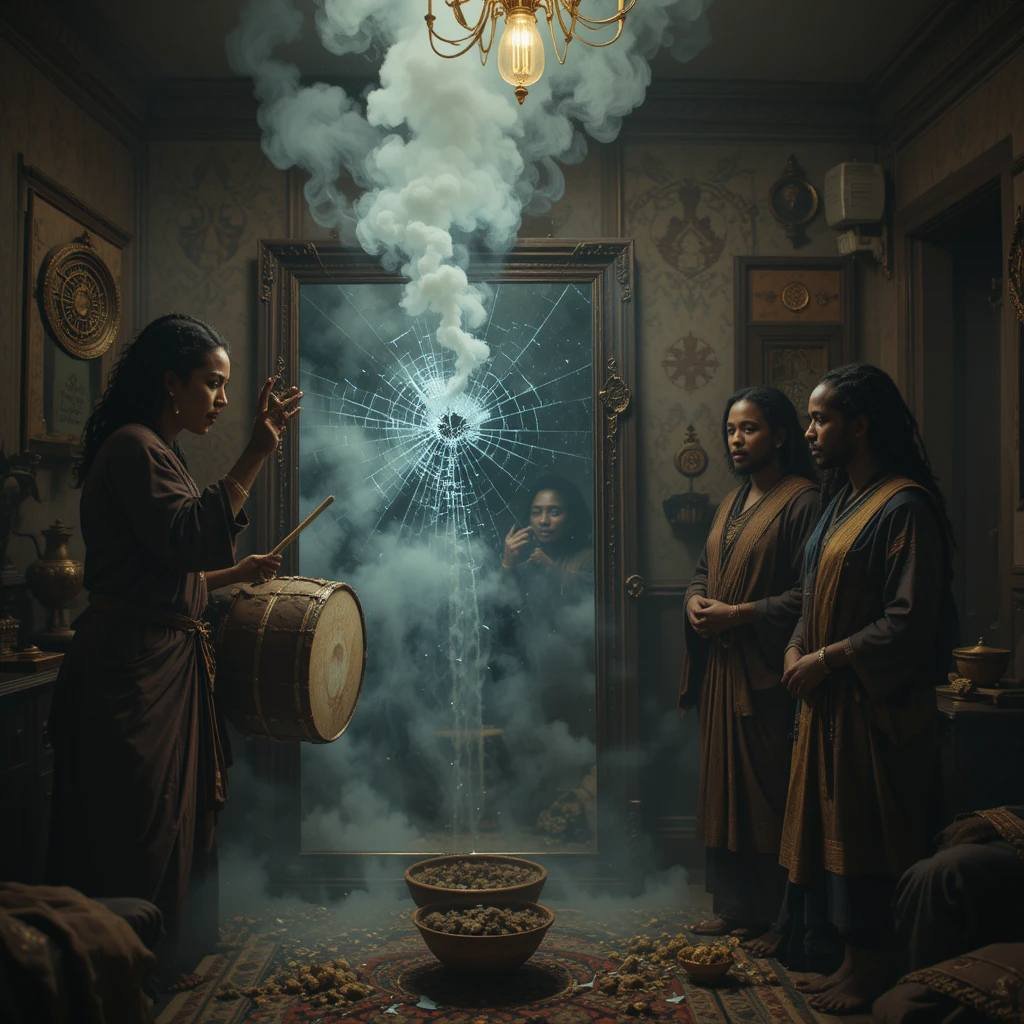Season 1 – Episode 5: "The Mirror in Nneka’s Room" – “The Last Reflection”
The rain fell heavily on the rooftop that Friday night, drumming a steady rhythm like a war cry from the gods. Inside the house, silence had returned, but it was thick and watchful. The strange mirror in Nneka’s room had remained covered with a white cloth since the events of the last episode. Nobody dared to go near it.
Mama Nneka had insisted they invite an elder from the village to “cleanse” the home. Nneka’s father, once a skeptical man of science, now agreed wholeheartedly. What they had all witnessed—the whispering reflections, the woman trapped in the glass, the chilling visions—was no longer imagination.
That morning, they fetched Dibia Obidike, an old traditional healer known across the village for his dealings with haunted objects. The man arrived barefoot, wearing a wrapper dyed with native patterns, his staff carved with Nsibidi symbols and decorated with cowries.
As soon as he entered the compound, he stopped and sniffed the air. “Your ancestors are troubled,” he said, eyes narrowing at the covered mirror through the window. “And something unnatural is using their silence.”
He entered the room without fear. Nneka and her parents stood behind him, tension mounting. The cloth was removed from the mirror, and once again, Nneka’s reflection did not move. It only stared.
“Who are you?” Dibia Obidike asked, but not to Nneka. He spoke directly to the glass.
The image’s mouth moved this time, silently. Then the surface of the mirror rippled like water, and a gust of cold wind filled the room. Everyone shivered. The elder held his staff tightly and began to chant in Igbo, invoking the spirits of the land, sky, and ancestors.
Smoke rose from his bag as he lit dried herbs and native chalk. The smell was sharp and earthy. He marked the four corners of the mirror with white powder and placed kola nuts at its base.
Slowly, the image in the mirror changed. It was no longer Nneka, but a young woman from the colonial era, bound in traditional beads and a white wrapper. Tears streamed down her face as she placed a palm against the glass.
“She was trapped during the war,” Obidike murmured. “Wrongfully accused of witchcraft and cursed to remain in the last mirror she looked into before death. That mirror… is this one.”
Nneka gasped. “So she’s been here for decades? Watching?”
The elder nodded. “And angry. You awoke her with your curiosity and fear.”
“What must we do?” Mama Nneka asked, her voice trembling.
“We must release her,” the Dibia said, now painting symbols across the mirror’s surface with ground charcoal. “But it will not be peaceful. Spirits that remain too long become bitter.”
He began to drum gently on a small handheld ikoro, singing a song of release. The room dimmed, and the mirror began to crack—not shatter, but split like ice. A woman’s cry echoed, part rage, part relief. Nneka stepped back, holding her ears.
Then silence.
The mirror turned black, then cleared. Only Nneka’s reflection remained—moving when she moved.
Dibia Obidike smiled, though weariness lined his eyes. “She is gone. Let her rest.”
That night, for the first time in weeks, Nneka slept peacefully. No whispers. No visions. Just dreams of sunlight and the rustling of palm trees.
The next morning, the mirror was taken into the forest and buried at the foot of an ancient tree. They marked the spot with a white stone and poured palm wine as an offering.




.jpeg)




